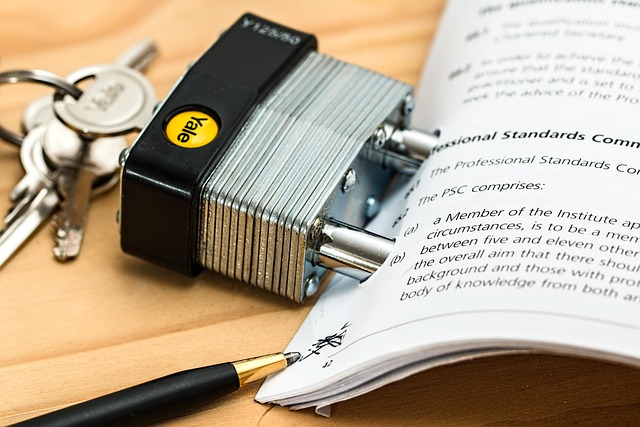Understanding lease terms explained is vital for students navigating student rental agreements. This comprehensive student lease guide equips individuals with knowledge about key lease clauses students need to know, including tenancy duration, rent payments, maintenance duties, and subletting policies. By carefully reviewing rental contract terms before signing, students can ensure a smooth transition into their new living space, foster good relationships with landlords, and protect their rights as tenants. Effective communication, clear guidelines on conflicts, and detailed record-keeping are emphasized for a positive living experience.
“Navigating the world of student rentals? Understanding your lease is crucial! This comprehensive guide deciphers the complexities of student lease clauses and terms. From the basics of a lease agreement to key provisions every student should grasp, we demystify ‘lease terms explained.’ Learn about your rights and responsibilities as a tenant and discover common issues in student leases and effective solutions. Equip yourself with knowledge before signing any rental contract terms.”
- What is a Lease Agreement?
- Key Lease Clauses Every Student Should Know
- Understanding Lease Terms: Definitions and Their Importance
- Your Rights and Responsibilities as a Tenant
- Common Issues in Student Leases and How to Address Them
What is a Lease Agreement?

A Lease Agreement, or rental contract, is a legal document that outlines the terms and conditions between a landlord and a tenant for the occupation of a property. For students looking to rent accommodation, understanding this agreement is crucial. It serves as a binding contract, specifying the rights and responsibilities of both parties during the tenancy period. By signing a lease, you’re agreeing to abide by the set rules and regulations regarding the use of the rental property.
This student guide aims to demystify lease clauses and terms, known as lease terms explained, which are often complex but essential to know. Student rental agreements can vary widely, so it’s vital to read through the entire contract carefully before committing. By familiarizing yourself with the rental contract terms, you’ll be better equipped to navigate your renting experience, ensuring a smooth and stress-free transition into your new living space.
Key Lease Clauses Every Student Should Know

When signing a lease for a student accommodation, it’s crucial to understand the key lease clauses and terms that protect both you and your landlord. Knowing what to look out for is vital in ensuring a smooth rental experience and avoiding any unexpected issues. A comprehensive student lease guide should cover essential elements like duration of tenancy, rent payment schedules, maintenance responsibilities, and subletting rules.
Understanding lease terms explained clearly allows students to know their rights and obligations. For instance, it’s important to be aware of the notice period required for termination or moving out. Additionally, rental contract terms should specify what constitutes acceptable damage and who is responsible for repairs. This student rental agreements transparency fosters trust between tenants and landlords, promoting a harmonious living environment.
Understanding Lease Terms: Definitions and Their Importance

When you’re a student, understanding the intricacies of a lease agreement can seem like a daunting task. However, familiarizing yourself with key lease terms and their definitions is essential to making informed decisions about your rental options. A lease, in simple terms, is a legal contract between a landlord (or property owner) and a tenant (you, the student), outlining the terms under which you can occupy a property for a specific period.
Each clause within a student rental agreement holds significance, from the duration of the lease to payment terms, maintenance responsibilities, and subletting rules. By grasping these concepts, students can navigate rental contracts with confidence. For instance, knowing what constitutes reasonable notice periods for moving out, understanding deposit refunds, and recognizing your rights and obligations regarding property damage or repairs are crucial aspects of protecting yourself as a tenant.
Your Rights and Responsibilities as a Tenant

As a tenant, you have rights and responsibilities that are protected by law. When signing a student rental agreement or lease, it’s crucial to understand these terms to ensure a safe and legal living situation. Your primary responsibility is to pay rent on time and maintain the property in good condition. This includes keeping the space clean, reporting any necessary repairs, and avoiding damage to the premises.
Lease clauses regarding communication and conflict resolution are also important for students. Understanding your landlord’s contact information and the process for addressing issues can prevent misunderstandings. Be clear on the expectations around noise levels, visitors, and pet policies. Knowing these lease terms explained will help you maintain a harmonious relationship with your landlord and avoid any surprises when it comes to renewing or ending your rental contract.
Common Issues in Student Leases and How to Address Them

Student leases often come with unique challenges and complexities that standard rental agreements might not cover. Common issues include vague or ambiguous lease terms explained, unexpected fees, limited privacy, and lack of understanding regarding maintenance responsibilities. To address these, students should thoroughly review their student rental agreements before signing. Pay close attention to lease clauses related to rent payment schedules, security deposits, subletting restrictions, and any special rules specific to the property or university.
Seek clarification on any unclear rental contract terms directly from the landlord or property manager. Many institutions also provide student lease guides or workshops to help tenants understand their rights and obligations. Keep detailed records of all communications and agreements, and don’t hesitate to ask for written confirmations regarding any changes to the original rental agreement. This proactive approach will ensure students can navigate their student lease smoothly and avoid potential disputes later on.






